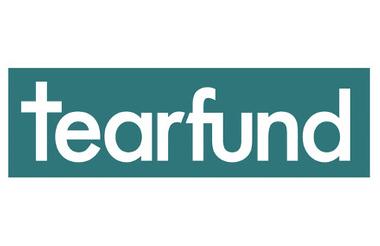The global development charity Tearfund is stepping back from using controversial non-disclosure agreements (NDAs) in settlements with staff, the charity has announced.
Tearfund says it will not initiate discussions about NDAs, and that staff who signed NDAs in the past are no longer bound by them.
The change comes five months after Civil Society News revealed that Tearfund had previously negotiated clauses in financial settlements which barred departing staff from criticising the charity after they left.
The charity has always said that it uses NDAs “very rarely”.
Tearfund confirmed that it is not completely ruling out future use of confidentiality clauses, but would only consider it at the request of an employee.
'With immediate effect'
The charity said in a statement yesterday: “Tearfund will no longer use confidentiality clauses (sometimes referred to as non-disclosure agreements or NDAs) in settlement agreements.
“There is a wider debate both in society, and within the church and charity sector around their use, and having considered this issue carefully and prayerfully, Tearfund has decided to stop their use with immediate effect.
“We will mutually lift existing confidentiality clauses from anyone who has signed one with us as part of a settlement agreement should they wish us to.”
Staff can still request NDAs
However, a Tearfund spokesperson acknowledged that the charity was “leaving open the possibility” of discussing NDAs, but only where the suggestion comes from a member of staff.
This is in line with recommendations by the aid umbrella body Bond, which last year suggested that “organisations could potentially look to only use NDAs when requested by the employee themselves”.
Tearfund said: “We recognise that in some cases employees may themselves wish to have a confidentiality clause in a settlement agreement, and in such cases we may consider using one.
“Tearfund has very rarely used settlement agreements, entering into them only after very careful consideration.
“On the few occasions that we have used settlement agreements, it has been to allow parties to resolve disagreements and move on after a relationship has irretrievably broken down, or where it has been necessary for employment law purposes.
“Previously, a confidentiality clause has been used within settlement agreements for the benefit of both parties.
“We have never used a confidentiality clause to cover up wrongdoing and our settlement agreements make clear that they do not in any way prevent the individual from raising any concerns with relevant regulatory bodies.”
Influence
Tearfund added that it was not trying to pressure other charities into changing their NDA policy, which some commentators have suggested is growing more widespread in the aid sector.
The statement said: “In taking this decision to no longer use confidentiality clauses, we are not aiming to influence the church or the development sector more widely.
“We simply believe it to be the best way forward for Tearfund, for those who work for Tearfund, and ultimately for the communities we are called to work with and before God whom we serve.”
Past use
Tearfund admitted last year that it has used NDAs in settlements with a small number of staff.
The charity's accounts also showed that it had spent over £400,000 on severance packages since 2017, although Tearfund stressed that NDAs were not used in all these cases.
One confidentiality agreement, seen by Civil Society News, banned a member of staff from making “any adverse or derogatory comment” about Tearfund after they left their job, and required them to destroy all communications relating to their role at the charity. In return, they received a five-figure pay-off, and the charity paid for additional “arrangements” for the ex-employee including a therapeutic retreat.
Campaigners: No one should be gagged by charities
Susan Hawley, executive director of the charity Spotlight on Corruption, which campaigns for greater transparency all over the world, welcomed the announcement.
Hawley told Civil Society News: “It is essential that no one is gagged from raising legitimate concerns and questions that arise in the course of charitable work: essential for public trust in the sector, and to ensure health debate within the sector when things go wrong.”
Related news











